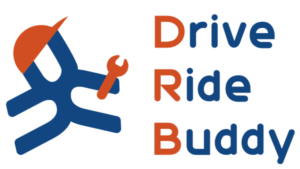Since the dawn of digitalization, every industry has changed to embrace the changes it has brought to the world. Even the automotive sector has tried to utilize digitalization, from the design of car parts to changing the way dealerships reach out to their customers and develop the business model that will work for the current environment.
It is estimated that investments made for the digitalization of the automotive industry are now around $82 billion by 2020 because they are now seeing the importance of these changes. There is also a large demand from motorists to utilize digital improvements as they try to research, buy and use a car.
According to studies, there are now 6 trends in the automotive industry brought by the ongoing digital transformation:
- Future of mobility and the industry
- Development of the autonomous and internet-connected car
- Digital retailing
- Mobility as a Service (MaaS)
- Digital sources in buying cars
- Connected supply chain
The trends are expected to change the car as a connected solution by 2030. The other parts of the industry are already being shaped by digitalization and there are now new specializations in all five impacts of the industry.
Down below are the various changes brought by digitalization to the automotive industry:
Impact on Car Workshops
For car workshops who embrace new technologies, digitalization will open new doors for them to attract new customers and increase their productivity. They can now use simulations to quickly detect issues and control car parts inventory with machine learning on sales patterns.
With digitalization, no more trial and error by the car mechanics. With electronic and computer diagnostics, there is higher precision in fault determination hence reducing time to physically check part by part to locate the fault.
The same goes for pre-inspection checks for preowned cars, buyers will now appreciate the precision and accuracy on checks before signing on the purchase.
Impact on Car Manufacturers
For car manufacturers and their suppliers, digitalization has brought several changes.
First, every aspect of the manufacturing sector is now changing to apply digitalization from product innovations to additional services. Since they are now online, manufacturers can do their research easily and find out what their customers need when it comes to their automobiles. Once the data is analyzed and the proper technologies are developed by the workshop, the manufacturers can immediately get to work for their newest models.
Manufacturing has also become faster and improved the way many parts, such as vehicle interiors are done. Many companies nowadays utilize various machines and technologies to keep production more uniform and R&D staff no longer have to train for a decade to be able to work in the production line.
With the help of technology, they can now do their tasks after 3 years of training. Even tasks which usually take time and precision to do, like sorting out interiors, are now made faster with the help of digitalization. A machine can easily be programmed to make the right cuts and measurements.
They will also both seek out partnerships with technology providers to get access to technologies like telematics, cybersecurity, 3D printing and others.
Companies like Tesla, Ford, and Toyota, for instance, are currently investing a lot of money to get partnerships with semiconductor and mobility companies to assist in their goals to improve their electric and mobility vehicles. The supply chain will also experience some shakedowns because thousands of startups will definitely enter the market, trying to cash in on the high demand for technology.
Smart connectivity is also changing the industrial manufacturing sector as they are now using disruptive technologies to keep it afloat. In the case of IoT, the use of cyber-systems will enable easy access to production solutions easily. However, while these technologies boost productivity, manufacturers have to constantly improve their technologies to stay in the game.

Credit: Photo by Matheus Bertelli from Pexels
Impact on Car Distributors & Sellers
It has become common to see country-specific strategies on advertising and distributing cars because digital retailing will become the norm for either new or used cars.
In digital retailing, the distributors will be able to find a larger market for their car offerings and negotiate with clients directly. Some may even connect these clients to insurance companies who can also conduct their services through digital platforms.
Aftermarket services and servicing will also be done through a digital format, from getting an appointment in a service centre to buying the aftermarket parts they need. Some car distributors may even offer digital servicing for onboard technologies.
These distributors and sellers will invest in digital services to show motorists all their options, as well as customize them when needed. They will also have more access to customer data and find ways to monetize in order to stay competitive in a consumer-driven industry.
Distributors and sellers must be able to create a good relationship with their clientele and be truthful to them about their services. If they are unable to do so, they may lose the loyalty their customers have with the brand.
Impact on Car Service Providers
Car service providers such as insurance companies will shift in how they compute one’s insurance package with digitalization. Since cars are now reliant on technologies to keep their passengers safe, there will be lesser chances of people seeking insurance claims. However, since these technologies are very sensitive, chances are high that the claims will be larger if they get damaged.
Insurers will also change the way they compute the premium risks for drivers. They will utilize a new model to determine one’s personal score: moral, technical and existing driver and car data.
When it comes to the moral aspect, they will check the history of the driver, especially their insurance claims and how long they were under uninsured driving. The technical risk will look into their driving history and where their car is registered.
Finally, the existing data collected from the vehicle will be used to determine how well the car is based on its safety rating and make.
Insurance companies can also have more customized contracts for their insurance policy and help those with specific risk needs to get insurance coverage with the help of digitalization. They can use online apps where they can offer personalized insurance policies based on the client’s risk score and details about the policy being offered. Insurance companies can upload a personalized contract to the apps and provide reasonable premiums to those with a good risk profile.
Impact on Car Drivers & Riders
For car drivers and riders, digitalization will open new opportunities for them to get new revenue streams.
For instance, an estimated 40 to 70 million people are currently signed up with carpooling and ride-hailing apps. These apps allow people to plan their journeys and pay for their rides with driver members who will pick them up. According to estimates, the industry will grow up to $2 trillion by 2025 worldwide.
Aside from new revenue options, they will now be able to influence the car manufacturing industry and assist in the development of what new vehicles should have. They will also be able to tell manufacturers how much they are willing to pay for certain improvements to vehicle performance.
Companies, as mentioned above, will be able to collect through the data collected from vehicle performance checks and other means, and use it for their other car projects.
It will be clear that drivers will become pickier when it comes to the vehicles they will purchase due to digitalization. They will now look into the brand’s track record and performance, as well as see what options are available to customize their car.
The Importance of Opening a Digital Mindset
As technology and digitalization are here to stay, it is crucial that people start building a digital mindset to sort out their business operations. Having such a mindset will allow them to reach out to their consumers and find out what they need.
Businesses must take time to develop a close bond with their customers and establish a good leadership team to sustain it. Becoming aware of new technologies and its impacts on the business model can help businesses to increase profitability and productivity. If one is unable to cushion the impacts, let alone evolve with digitalization to the automotive industry, it is likely the business will be left behind.
It is difficult to say how the automotive industry will change as time passes; however, it is clear – digitalization will continue to shape how it works.
Having more than 20 years as a manager in various industries, Kally Tay founded a career website to help others to thrive in their jobs. Featured on numerous platforms such as WordPress Editor’s Pick and AllWomensTalk, her website MiddleMe.net discussed difficult and sensitive issues like workplace abuse and discord among coworkers while providing practical advice on how to handle those situations. As a freelance writer & recruiter herself, Kally helps others find success in freelancing and thus striking a balancing between work and family. Becoming unstuck: whether it is the job you dread, the financial status you are in or the negative mindset you have.
Instagram @kallymiddleme
Twitter (MiddleMe_net)
FaceBook (MiddleMe.net)
LinkedIn linkedin.com/in/kallytay

